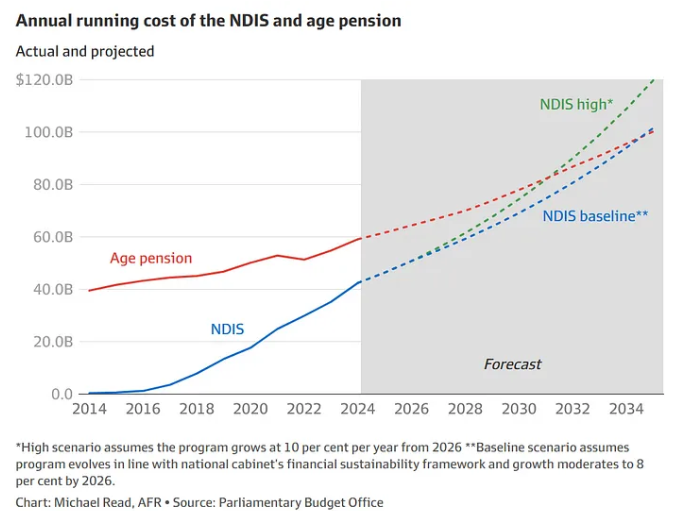Wokey has been trying to turn Australia into a Chinese satrap for a few years now.
It is little more than jingoistic and self-serving ignorance as it bristles about losing Big Tech revenues, but it’s currently in tune with local Trump Derangement Syndrome, so it is more dangerous than usual.
Wokey can barely contain itself today after Foreign Minister Penny Wong’s failure following Kevin Rudd’s failure.
As the Albanese government continues to be hounded with questions over Australia’s relationship with the US under Donald Trump, there are calls for the country to take a new approach to its foreign policy.
Foreign Affairs Minister Penny Wong concluded her Quad meeting and bilateral talks with US Secretary of State Marco Rubio yesterday, but as the AAP points out this morning, “the future of defence spending, tariffs and Australia’s nuclear submarine agreement with the US and UK remain unclear” after the Washington visit.
Wong revealed Australia’s military budget wasn’t even discussed during the talks, and while the other topics were, “there was little sign negotiations had progressed”, the newswire added.
…La Trobe University’s international relations Emeritus Professor Joseph Camilleri told the AAP the government hasn’t been able to coherently handle the differences between the administrations.
…He said Australia should work to clarify how its relationship with Washington relates to its South-East Asian neighbours on one hand, and with China on the other. Camilleri claims that could then feed into the position the government takes on issues like the wars in Gaza and Ukraine, AAP adds.
I agree with that, but not quite in the way that the good professor is thinking.
Labor is stuffing up both sides of the Great Power relationships.
On the first front, Trump Derangement Syndrome is just the latest iteration of anti-Americanism that plagues the defensive Australian imagination.
The truth is, we are a bludging ally, and it is time to fix that by lifting defence spending. If we have to stand alone, it will not be up 50%; it will triple, and that would still not be enough. AFR.
That transition would all come at a price of multiples of our current annual defence spend of $59 billion, on top of the cost of operating and maintaining the force and paying for its civilian and military workforce. And without easy access to American resupply, we’d need to build deeper domestic supply chains and create new international ones. Support and maintenance are even more expensive than the eye-watering price tags of high-end things such as advanced fighters and submarines.
It also wouldn’t replace the intelligence access we get from the US-centred Five Eyes grouping.
But tripling the defence budget for a couple of decades – and giving up on nuclear submarine dreaming – could build this new Australian military untethered from America.
On the second front, we need to be much more honest with Beijing that we’re happy to trade, but when push comes to shove, we’re with liberal hegemony.
The national interest is that simple, and by stuffing around with it, we are letting China advance its fait accompli illiberal hegemonic takeover while pissing off the liberal hegemon.
To wit, within three years we plan to spend more on disabling the nation than on defending it.

This is not “finding safety in Asia”. It is planning to be the “defenseless spastic of Asia” run and surrounded by a Chinese tyranny that doesn’t recognise disability.
In the end, the irony is, only a truly retarded nation would toy with such a choice.

